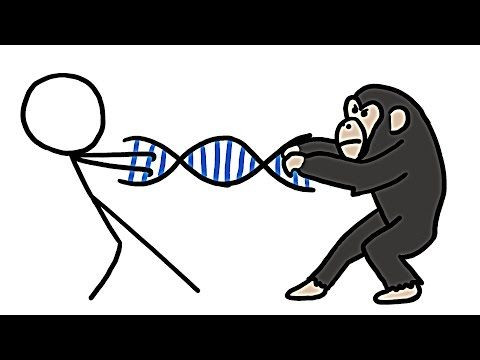Dissecting The Human Genome: Are Humans And Chimps As Genetically Close As You Think?

As human beings’ collective love of science continues to grow, our knowledge of the theory of evolution may lead us to believe that we are 99 percent made up of DNA that is identical to chimpanzees. But is that true?
This video deconstructs that belief. If you were to put a scroll of our DNA next to a chimpanzee’s, they wouldn’t sync as neatly as some might think they would. In the last six to eight million years, when we split from our common ancestor, genetic mutations and natural selection have changed our genomes in radical ways.
“Yes, we share 99 percent of our DNA with chimps — if we ignore 18 percent of their genome and 25 percent of ours. And there’s another problem: just as a small tweak to a sentence can alter its meaning entirely or not at all, a few mutations in DNA sometimes produce big changes in a creature’s looks or behavior, whereas other times lots of mutations make very little difference,” Emily Elert, the narrator, said in the video.
Counting up the changes in DNA doesn’t always tell us how similar or different two creatures are. That doesn’t mean that we don’t know anything, or are left in the dark by these mismatched patterns. While we may not exactly be able to put our DNA side by side with a chimp’s, we can still use that DNA which contains records of evolutionary relationships between all organisms.
“It’s a garbled record, but by reading closely, we’ve been able to glean enough information to refine the evolutionary trees we started drawing long before genome sequencing was around,” Elert said.
Published by Medicaldaily.com



























